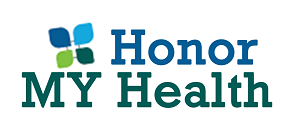
In the ever-evolving healthcare industry, operational efficiency remains a key factor in delivering quality patient care while maintaining profitability. One of the most overlooked yet vital components of streamlining operations is accurate and timely insurance verification. Healthcare providers increasingly rely on insurance verification services companies to reduce administrative burdens, improve claim approval rates, and enhance overall patient satisfaction. Integrating these services can transform a provider’s workflow and help prevent costly delays and denials.
The Role of Insurance Verification in Streamlining Workflow
Insurance verification plays a central role in preventing administrative issues before a patient even arrives for an appointment. It ensures that the provider has a clear understanding of the patient’s coverage, eligibility, co-pays, and deductibles. When conducted manually, this process is often time-consuming and error-prone, leading to bottlenecks in billing and reimbursements.
To address these issues, many providers partner with specialized insurance verification services companies, which offer a dedicated team to manage all aspects of verification. By doing so, providers can free up their in-house staff to focus on patient care rather than administrative follow-ups.
These companies employ professionals who are well-versed in payer policies, coding requirements, and documentation procedures. This reduces the likelihood of claim denials and speeds up reimbursement cycles, ultimately resulting in improved cash flow and operational efficiency.
Understanding the Verification Process
Before diving deeper, it is important to understand how the health insurance verification process works. The process typically involves collecting patient insurance information, contacting payers to confirm coverage details, and identifying any restrictions or authorizations required. This ensures that there are no surprises when it comes time to bill the patient or their insurer.
When this process is automated or outsourced to experts, it reduces the chances of human error, improves turnaround time, and ensures compliance with changing insurance regulations. Integrating this process early in the patient journey minimizes disruptions later and helps build trust with patients, who appreciate clarity around their financial responsibilities.
Broader Impact on Healthcare Operations
The benefits of insurance verification extend beyond billing departments. Streamlined verification processes improve scheduling efficiency, reduce appointment cancellations due to coverage issues, and provide patients with accurate cost estimates before their procedures. This leads to better patient engagement and satisfaction.
Moreover, timely verification supports faster claims processing, resulting in quicker reimbursements and more consistent revenue. According to research, insurance verification services in the healthcare industry are important as these services play a vital role in minimizing revenue leakage and improving overall administrative performance. The article emphasizes that providers who invest in verification support see fewer billing errors and faster revenue cycles, reinforcing the importance of outsourcing or automating this function.
Conclusion
Insurance verification is a foundational element in improving healthcare operations. Partnering with insurance verification services companies allows providers to eliminate administrative redundancies, reduce claim denials, and deliver a seamless patient experience. By understanding how the health insurance verification process works and recognizing the importance of our insurance verification services in the healthcare industry, healthcare providers can make informed decisions that enhance efficiency and financial performance. Embracing professional verification solutions is not just a strategic move—it is a necessary one in today’s competitive healthcare environment.

